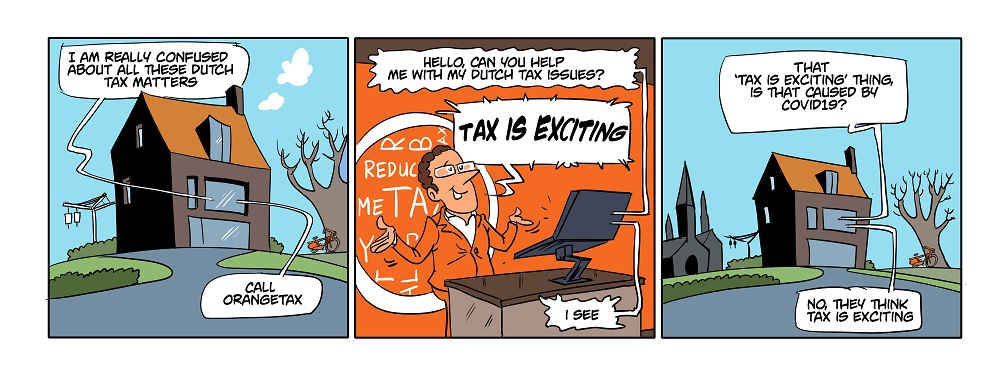Shareholder and salary income is a continuous discussion. There are rules in the Netherlands. The preferred situation is low salary high dividend, but that is forbidden. The regular employees also play part in this discussion, how is that possible?
Shareholder and salary income
If you are the shareholder of the company in which you are the director, you can do as you like. You think. Tax wise that is not the case. Many before you have indeed done as they liked. This resulted in rules that have been set in place.
Low income high dividend
The most desired salary is a low salary and then high dividend. Is that indeed a desire?
Example
Let us assume the salary is EUR 70.000, so anything earned on top is taxed at 49,5% income tax. To avoid that, no EUR 50.000 bonus is paid to this director. As a result the company made for the purpose of this example EUR 50.000 profit. That profit is taxed with 16% corporate income tax being EUR 8.000. Hence there is EUR 42.000 after tax profit available for dividend. The dividend withholding tax is 26,5%. That implies EUR 11.130 dividend tax is to be paid, so net received by the director is EUR 30.870. That is more than EUR 50.000 gross salary taxed at 49,5% income tax.

What is the problem?
The problem is that most directors did not take EUR 70.000 as salary, but they waived their salary. Zero. If you have zero salary, you are poor. If you are poor, you receive a rental tax credit, health carde tax credit and day care tax credit. But this employee is not poor, he will probably receive EUR 70.000 dividend.
To avoid the zero salary the minimum salary for a director that also owns at least 5% in shares in the company is set at EUR 47.000. However, the salary cannot be less than 75% of a similar position. And the salary cannot be less than the highest paid employee who has no shares in the company.
Court case shareholder and salary income
A director paid himself the following salaries: EUR 177.705 (2013), EUR 180.962 (2014), EUR 199.098 (2015), EUR 217.427 (2016), EUR 217.427 (2017) and EUR 215.239 (2018). The tax office disagreed with that salary, as the highest paid employee earned constantly EUR 215.239 during these years.
The director argued in court that a similar person earned the salary that was paid to him over the years. The proof he provided was that of a person not in a similar position. Nor was sufficient proof provided, only for the year 2016.
The court dismissed the proof, and agreed with the tax office that over the 2013-2018 period the correct salary is EUR 215.239 and all years were updated to that amount.
What is a correct salary?
We are often asked what is the best salary tax wise to obtain. This is not a simple question, as the director holding a 30% ruling benefits from taking the maximum salary possible. That is tax wise better. Some fix themselves on the minimum of EUR 47.000. That is a risk if the result of the company is very positive. The court ruled in 2011 that 75% of the profit is a correct salary for the shareholder, not less than EUR 47.000 (2021).
That was the tax part. Then the EUR 47.000 salaried director comes to us a couple of years later that he want to purchase a house, but the bank does not want to loan him enough. The bank states his salary is not good enough. Setting a salary is more than tax alone, more is involved.
Tax is exciting
We think tax is exciting. We are excited for you to start a BV company. The salary is a flexible part of the administration. At the start the company probably does not earn enough to pay salary. If successful much more salary can be paid. This update needs to be made. If not, the tax office could compare the corporate result against director salary earned in their system. If not in line with expectations, corrections probably follow. Corrections are often not exciting.





